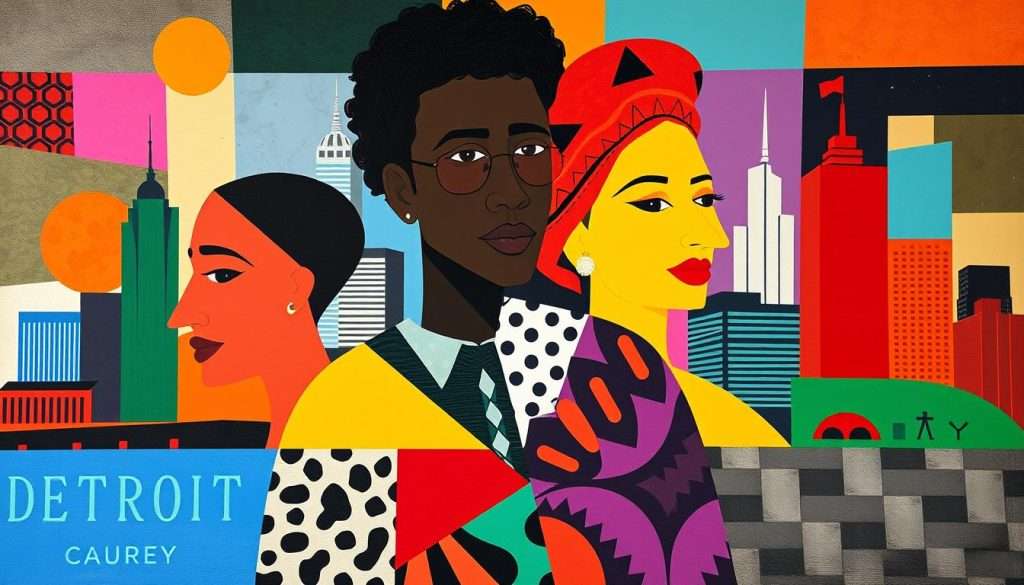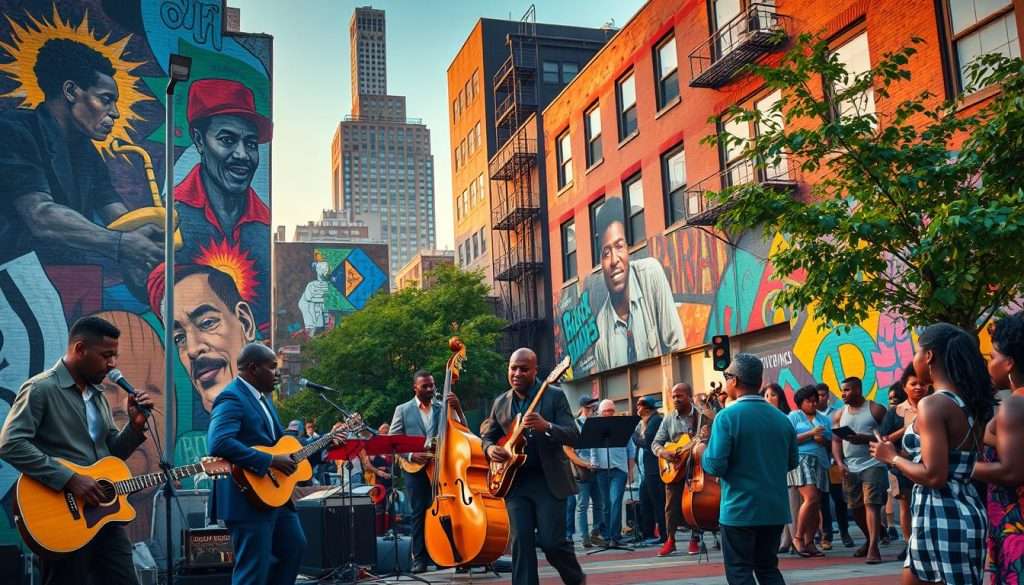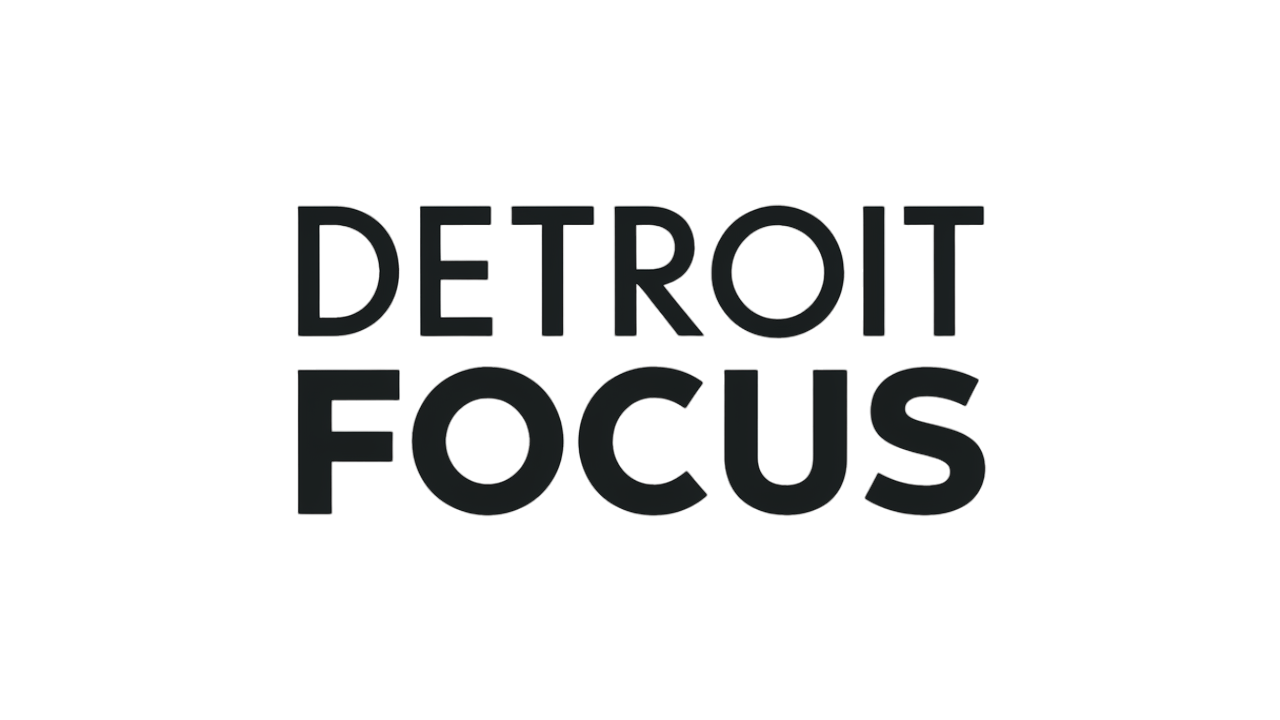The latest Detroit census data shows that about 78% of the city’s people are Black. This makes Detroit the city with the most Black people among big U.S. cities. But, the metro area is different, with only about 23% Black people.
This big difference comes from a long history of segregation. It started with the Great Migration and changed over time because of the economy, culture, and city policies.
The Detroit population demographics show a rich mix of people. Looking at the past, we see progress but also ongoing challenges. It’s important to understand the Black community’s unique experiences in Detroit.
Overview of Detroit’s Demographics
Detroit’s demographics show a story of change and growth. They reflect the city’s history and its economic and social changes. To understand these demographic changes in Detroit, we need to look at its past, recent trends, and how people move.
Historical Context of Detroit’s Population
In the early 20th century, Detroit grew fast because of the car industry. This brought many Black workers. By 1940, only 9.6% of Detroit’s people were Black. But by 1960, this number jumped to nearly 30%.
Between 1970 and 1980, Detroit became mostly Black. Today, about 78% of Detroit’s people are Black. This makes Detroit the city with the most Black residents in the U.S.
Recent Trends and Changes
Even though Black people still make up most of Detroit, there have been changes. Between 2000 and 2020, over 30% of both Black and white people moved to suburbs. This shows the challenges of living in the city.
Detroit’s bankruptcy in 2013 made things harder. Foreclosures went up, and people struggled financially. Back then, 68% of mortgages were subprime. Black people were 70% more likely to get these loans than white people.
The Role of Migration in Demographic Shifts
Migration has greatly influenced Detroit’s demographics. People move for better jobs and homes. This movement has changed the Detroit ethnic statistics and shows a broader trend of people seeking stability.
In 2020, Detroit had about 639,111 people. But the suburbs grew, showing a shift in preferences and economic needs.

| Year | Black Population (%) | White Population (%) |
|---|---|---|
| 1940 | 9.6 | 90.4 |
| 1960 | 30 | 70 |
| 1980 | Over 50 | Less than 50 |
| 2000 | Approximately 80 | Less than 20 |
| 2020 | 78 | 23 |
The Black Population in Detroit: A Snapshot
The racial makeup of Detroit shows a strong presence of African Americans. They make up 80% of the city’s people. This big number greatly affects the city’s culture and economy.
It shapes the local identity and impacts community projects and businesses.
Current Percentage of Black Residents
In Detroit, African Americans have a deep connection to the city. They make up 80% of the population. This is different from Metro Detroit, where only 22% are Black.
This unique mix helps Black businesses and groups thrive.
Comparison with Other Major Cities
Detroit stands out when compared to other big cities. It has a high number of Black residents. Cities like Chicago and Philadelphia have fewer Black people.
This shows Detroit’s special place in the country’s demographics.
Economic Impact of the Black Community
Black residents in Detroit have a big economic impact. They run many businesses, creating jobs and investing in the community. But, there are still big challenges.
Income, homeownership, and access to resources are issues. About 40% of Detroiters live in poverty, with kids facing even more problems.
The Black community needs support and community efforts to overcome these challenges.
Cultural Influence of Detroit’s Black Population
Detroit is a key place for Black culture, with a rich history and lively arts. The African American influence is seen in arts and entertainment. This helps create a place where creativity thrives and heritage is celebrated.
The Arts and Entertainment Scene
The arts in Detroit are shaped by a vibrant Black community. Visual arts, theater, and more show African American leadership. Groups focused on Black art help local talent and keep heritage alive.
Events like the Detroit Jazz Festival show the city’s musical roots. They also highlight new talent.
Contributions to Music and Culture
Artists like Stevie Wonder and Aretha Franklin have shaped Detroit’s music. They’ve made the city famous and inspired many musicians. Motown Records, born in Detroit, changed the music world.
Genres like soul, R&B, and hip-hop have deep roots in Detroit’s Black community. This makes it a center for musical creativity.
Notable Figures in Detroit’s History
Many have left a mark on Detroit’s culture. Civil rights activists and artists have enriched the community. Their stories show the diversity and richness of Detroit’s Black culture.
Events celebrate these figures and their lasting impact. They highlight their achievements and ongoing influence.

| Figure | Contribution | Era |
|---|---|---|
| Aretha Franklin | Queen of Soul, iconic performances | 1960s-present |
| Stevie Wonder | Trailblazing artist, versatile musician | 1960s-present |
| Motown Records | Launched numerous Black artists | 1950s-1980s |
| John Conyers | Civil rights champion, political mentor | 1960s-present |
Challenges Facing the Black Community in Detroit
The Black community in Detroit faces many challenges. These issues are tied to deep socioeconomic problems. The poverty rate among Black residents is over 26%, much higher than the national average.
This big difference in income and wealth makes it hard for people to move up economically. These problems last for many generations.
Socioeconomic Concerns
Socioeconomic issues in Detroit have big effects. High poverty rates and lower education levels among Black residents are major problems. Programs like the Detroit Promise are working to help.
This scholarship helps improve education and job skills. It’s key to helping people become economically independent and close the racial equity gap.
Education and Employment Issues
Employment problems add to the socioeconomic troubles. Black Michiganders often have higher unemployment rates. The job market changes and lack of skills training make things worse.
It’s crucial to build community support in Detroit. This support is needed to find better jobs and improve education for Black residents.
Community Initiatives and Support
Grassroots groups are vital in Detroit. They offer important resources and push for policy changes to help the Black community. These efforts empower people, build resilience, and fight against long-standing inequality.
| Indicator | Black Residents | All Residents |
|---|---|---|
| Poverty Rate | 26% | 15% |
| Unemployment Rate | Higher | Lower |
| Percentage with Bachelor’s Degree | 16% | 32% |
| Black Middle-Class Households (2010-2021) | -17.6% | +17.0% |
Looking Towards the Future: What’s Next for Detroit?
Detroit is changing, with many Black families moving to the suburbs. This is changing the city’s look and feel. Downtown and Midtown are getting new developments, making the city more diverse.
This change is important for Detroit’s future. It shows the city is growing and changing. It’s key to keep everyone involved in making Detroit a great place to live.
Predictions for Demographic Changes
Experts say Detroit’s population will keep changing fast. The number of African Americans in Detroit is dropping. This is because many are moving to the suburbs.
Community groups are fighting for fair growth. They want to make sure everyone can afford to live here. They want to keep Detroit’s culture alive.
Community Engagement and Activism
More people need to get involved in local decisions. Activists are making sure Black voices are heard. They want policies that help everyone, not just a few.
They also want to make housing more affordable. And they want to fix the city’s old buildings. This will help Detroit grow strong and fair.
The Importance of Representation in Politics
Having diverse leaders is key for Detroit’s future. They can focus on areas that need help. This makes sure the city works for everyone.
Knowing Detroit’s Black history is important too. It helps make fair policies. This will help Detroit become a welcoming place for all.
